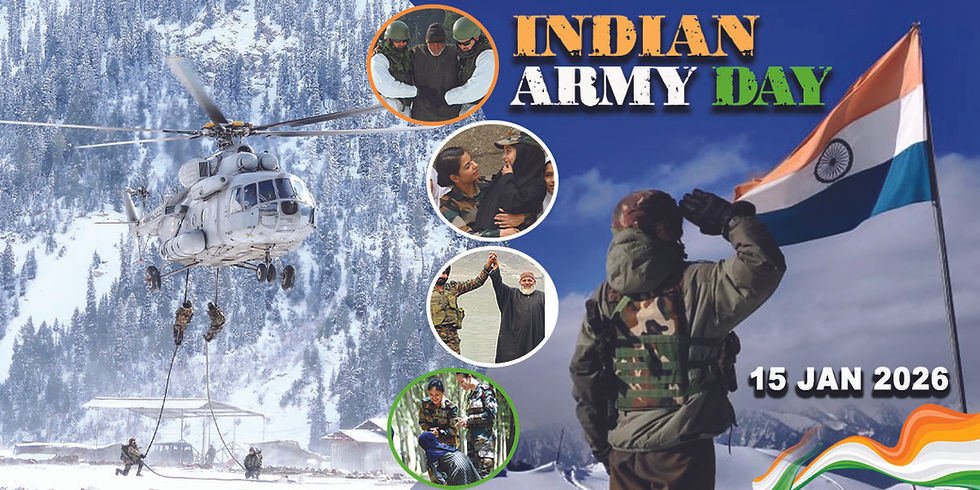Fauj Hai Na - The Hope Not, Firm Faith
- Soldier Stories Of Kashmir

- Jul 9, 2020
- 3 min read
Shaukat Ahmed Mir, age 24 is a high school passed student and works as a porter with the armed forces. He lives with his father, mother and two younger brothers in a village close to the LC. Though his education might be limited but his maturity has no boundaries. He is a cheerful guy with limited needs and is satisfied with his life. In trying times when the whole world is embroiled in tackling COVID-19, economies are crumbling, people are losing jobs, survival is tough, there are people like Shaukat who are hardly worried and owe it to armed forces whom they consider a main artery in their lives.
On a sunny morning this May, I happened to strike a conversation with him and in no time, we started discussing a very common topic - COVID 19. I was inquisitive about its affect on their lives. Luckily for them the virus had not reached these parts and nothing much had changed for them yet. Still I posed the question to him to understand what was their plan and how would they deal with the situation if a lockdown was enforced in their area or people were infected by the virus. “Fauj hai na”, I was taken aback by the answer as I was not prepared for it. “Fauj hai na”, I asked him,what he meant by it. The young man, in very humble words started telling me how the Army has now become a life line for them and the place it has in their lives. I never knew how knowingly & unknowingly we were helping them and in turn earning loyalty. He started telling me about his village which is located a few km from the Line of Control. The village is a Gujjar village with the main occupation of the villagers being porters for the Army, a few have joined the Army or the Police, a few are local shopkeepers and farmers. The land is not very fertile and they can only grow limited crops. Only enough for their family’s sustenance. He recollects that the deployment of the Army in the area years ago had brought a new hope and also some development in the area.
Since the people in the area are not educated and rear livestock for their living, earning money and supporting their families was difficult. Over a period of time the whole village is now dependent on the Army. The villagersare now employed as defence/casual porters for half the year during the summers and in winters work under govt schemes. Earning a decent amount, has helped them improve their economic state and their living conditions.
A decade ago, the village was frequently visited by terrorists and was often a target of cease fire violations. With the Army deployed in the area, terrorist movement & exploitation has reduced and there is a sense of security among the locals. The locals reared ponies and cattle, now the same ponies are being employed by the Army for fetching stores. The village does not have proper medical facilities and is often dependent on the medical officers and nursing assistants of the Armed Forces for any medical assistance. At times the Army has carried out evacuation of locals during nights during medical emergencies. The shopkeepers have started getting more stores as the forces have become their main customer base. The area is known for local handicrafts woodwork. Their products like wooden mugs, name plates are popular among the troops and provide them decent earnings for their work. Overall the forces have indirectly been helping them in their economic upliftment apart from bringing stability to the area. Sadbhavna projects have also aided development in the area over a period of time. During the covid pandemic, with civ medical facilities not being available in the area all the locals are dependent on the army. Road connectivity has been another issue of concern in the far-flung areas. The Operational track created by the forces has made it easier for locals to commute to nearby towns.
People like Shaukat are a prime example of solid, upstanding citizens of Kashmir, who reject the jihadist ideology. It is unfortunate that their simple, remote life never makes the headlines,leaving the world to judge Kashmiris by the loud rhetoric of the radicalised few.








Comments